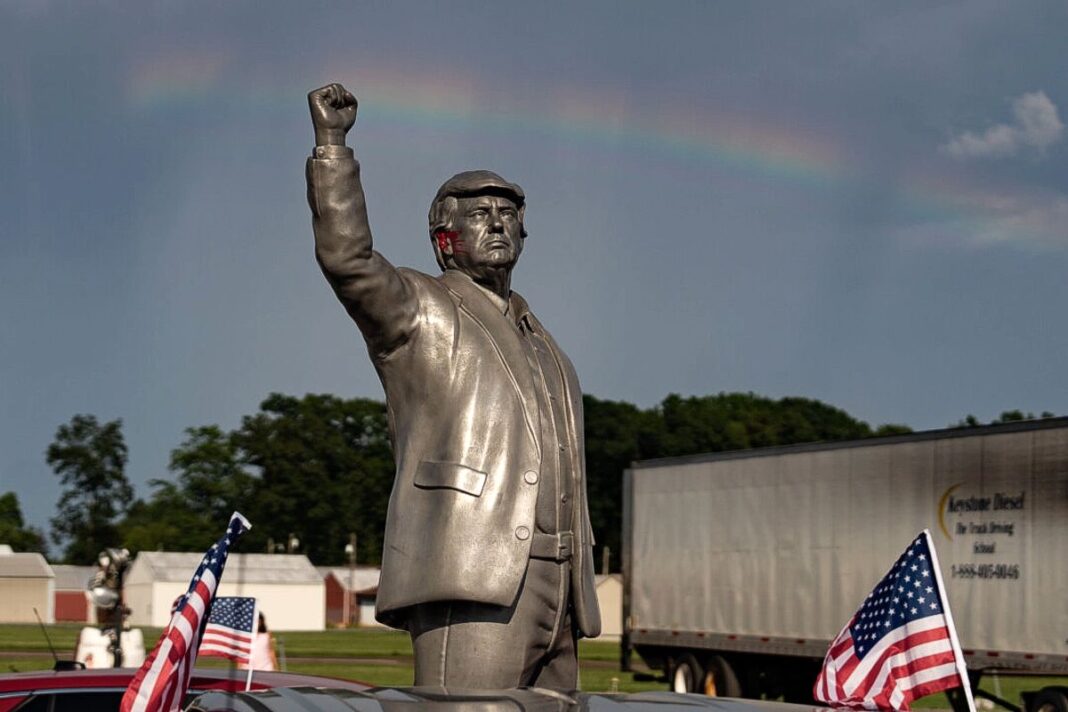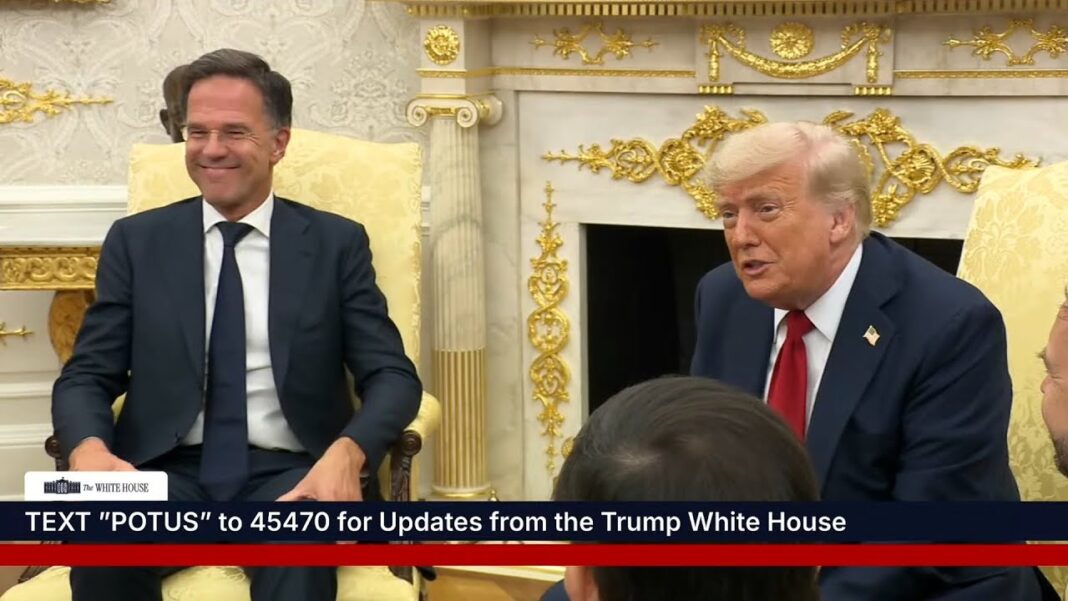A rainbow spread across a darkened sky, which witnesses interpreted as a sign of hope a year after a gunman opened fire at a rally for President Donald Trump.
BUTLER COUNTY, Pa.–Ever so faintly, a rainbow began to spread across dark clouds blanketing the Butler Farm Show on July 13, inspiring awe among people who gathered for an event called “The Butler Miracle Anniversary.”
The group honored the memory of Corey Comperatore, who died while heroically shielding his family when shots rang out at that site a year earlier, and they praised God for sparing the life of President Donald Trump. Then a presidential candidate, he was eight minutes into his campaign speech when a rooftop gunman opened fire on July 13, 2024.
Many millions of people have seen “the video footage of Trump turning his head just a fraction of an inch—necessary at the exact millisecond when a bullet would have penetrated his brain and certainly killed him,” an event organizer said.
“It was, I believe, the most-witnessed miracle in all of human history—and it happened here in Butler,” she said.
That uniquely positions believers to “point others to the awesome God who miraculously spared Trump for a purpose,” the organizer said.
She and others requested anonymity to avoid political blowback at their jobs or in the community.
“The miracle doesn’t negate the tragedy of Corey Comperatore’s death, nor does that tragedy negate the miracle,” the organizer said.
The event highlights the community’s struggle to strike an appropriate balance between celebrating Trump’s miraculous survival and mourning Comperatore’s tragic death. Butler is also torn between moving forward and searching for answers about the gunman, his motivations, and the security deficiencies that allowed him to carry out his nefarious deed.
A week before the anniversary of the history-making rally, Butler County Commissioner Leslie Osche told The Epoch Times that people discussed setting up public events to mark the occasion but that “nothing felt right.”
“What that says to me is: Either we’re not ready or it is too soon,” she said.
“When you have something that’s historic, it’s usually going to be many, many years later before people process it.”
By Janice Hisle








